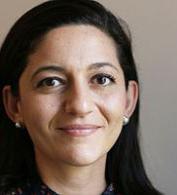A purpose-designed Master of Health Service Management at the Australian Institute of Health Service Management (AIHSM) at the Tasmanian School of Business and Economics is transforming individual health professionals and their organisations.
The program, along with a twin course – the Master of Health Information Management – offers healthcare management professionals the opportunity to learn through the collaboration of academic scholars and healthcare executives.
The AIHSM delivers two unique Master’s programs comprising a mix of university-facilitated content units; industry-led master-classes; ongoing professional development or “learning sets”; and an organisational focused management research project.
As coordinator of the Master of Health Service Management, Dr Kathy Eljiz says, the course is about providing management professionals with theory and knowledge from a range of fields, including management and organisational development, their application in the contexts of complex health care organisations, and applying the tenets of research culture.
All of this is to encourage a more evidence-based approach to management.
“It’s really exciting, because we set up research projects so healthcare managers can learn the academic research rigor while applying the knowledge to produce translational organisational outcomes,” said Dr Eljiz.
The aim is to improve the management of organisations, and through that, patient care outcomes.
As an AIHSM embeddedacademic [A1] in the South Western Sydney Local Health District, Dr Eljiz’s role is multifaceted and challenging. She collaborates with executives and managers in the healthcare service to develop and implement professional learning opportunities and organisational development projects.
In doing so, Dr Eljiz brings insights from academia, research rigor, and critical thinking to health service management professionals.
“People promoted to management are often doctors and nurses and allied health professionals. They are promoted because they are good at being a doctor or nurse or an allied health professional, but they haven’t had training in how to be a manager or leader,” she said.
Dr Eljiz has researched health services management for more than 10 years. Her aim is to help professionals who are students – and can be trainees, clinicians, managers, and executives – manage the complex branches of a healthcare organisation, and make informed judgements.
“The goal is to skill them up to be comfortable with, and also be critical of, the empirical evidence, and use it in management practice,” she said.
Dr Eljiz guides healthcare professionals through each step of the research process, including ethics applications, which are a crucial step to produce rigorous, meaningful, and translatable outcomes to derive improvements.
She also encourages and supports management students to present their work at industry and academic seminars and conferences, and write up their research for publication.
“I try to encourage and promote a collaborative research culture, and I want them to take it further and disseminate the great work they’re doing,” said Dr Eljiz.
When supporting them through their Master’s or PhD degree, our job is to help them to think critically, use evidence, challenge themselves and others, and push them further than they think their limits are.
The AIHSM collaborative research-based individual and organisational development approach has achieved significant impact. Students who were once hesitant to apply theory and knowledge, or approach research ethics applications and assume leadership roles, have told Dr Eljiz of occasions when their new skillsets have come into play at crucial moments in the workplace.
“It’s really rewarding to see that people who were once terrified of an ethics application or management theory, can use evidence in a very formal way to help them achieve positive industry outcomes,” she said.
Years after graduates finish the Master’s programs, Dr Eljiz sees the positive impact of these new management and judgement skills on patient care.
The impact, individually and organisationally, is amazing.
Find out about studying Business and Economics at the University of Tasmania here.
